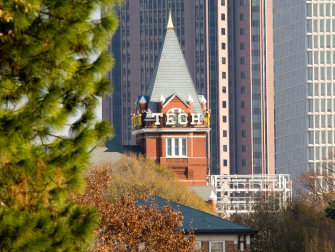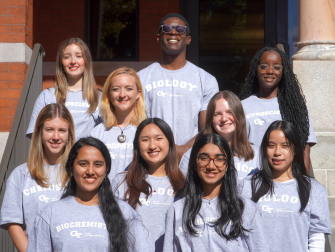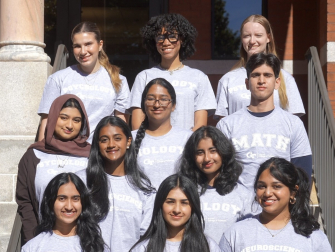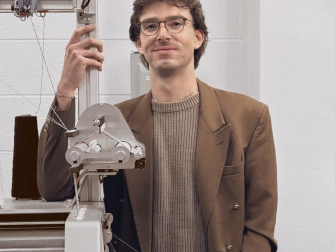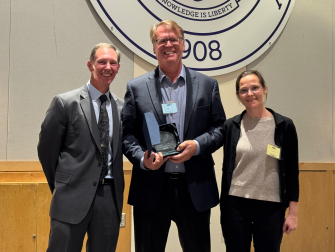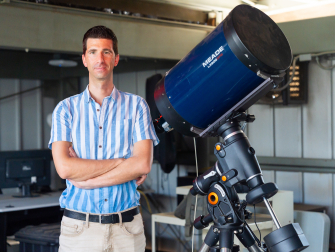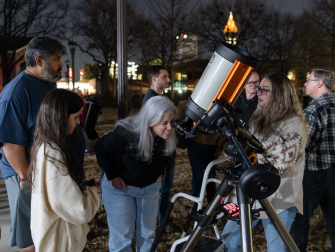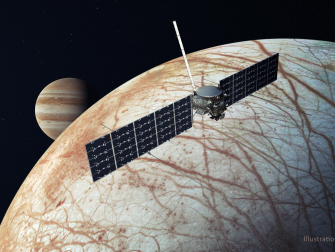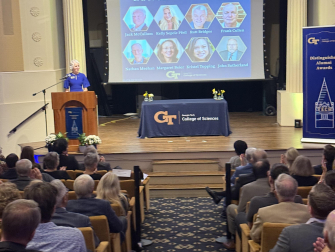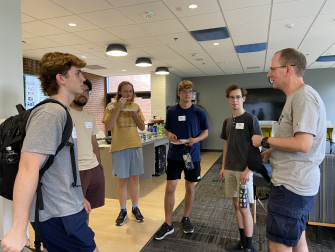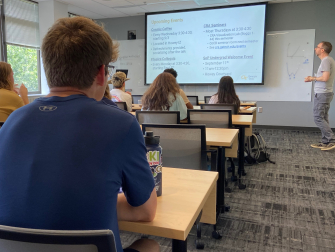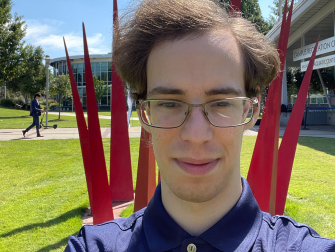How do you know anything is real? Some things you can see directly, like your fingers. Other things, like your chin, you need a mirror or a camera to see. Other things can’t be seen, but you believe in them because a parent or a teacher told you, or you read it in a book.
Physics Professor Flavio Fenton has been named a Bill Kent Family Foundation AI in Higher Education Faculty Fellow. The fellowship supports faculty projects that explore innovative, ethical, and impactful uses of AI in teaching and learning.
The AI4Science Center's seed grant aims to support the development of research projects centered on innovation and collaboration.
Congratulations to the inaugural class of College of Sciences undergraduate student ambassadors!
Cachine was selected for his work in solving modern medical challenges using ancient textile techniques.
Professor Michael Chapman has been awarded the 2025 Jesse W. Beams Award in recognition of his significant contributions to the field of physics.
The College of Sciences has named Paul Sell as the new director of the Georgia Tech Observatory. Sell joined the Institute in Fall 2025 as a senior academic professional in the School of Physics.
In four years, NASA's Europa Clipper mission will arrive in Jupiter’s orbit to investigate whether the planet’s icy moon, Europa, could support life. In the interim, Professor Sven Simon is working to uncover critical information to support the rapid analysis of measurements from the mission.
The College of Sciences’ community came together to celebrate the inaugural Distinguished Alumni Awards, recognizing the diverse achievements and inspiring journeys of eight alumni.
Simple equations are revealing how topography controls supraglacial lake size in Antarctica — and why it matters for climate predictions.
The undergraduate astrophysics program introduces students to the fundamental physical processes and laws that govern the cosmos. This foundational curriculum is complemented by training in computational and data analysis techniques.
Sciences is the first Georgia Tech College to reach its target, exceeding a $75 million campaign goal. As the campaign continues, the College of Sciences remains focused on expanding student opportunities, accelerating scientific discovery, and supporting faculty excellence.
- 1 of 24
- next ›



